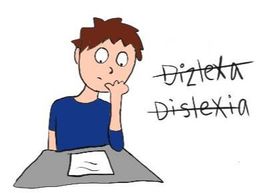|
By Dr. Sheila Clonan  We’ve worked with many families lately whose schools “don’t recognize” dyslexia. They are told either that it is a “medical diagnosis” (what?!?) or that it “isn’t in the law.” We’ve had parents tell us that their school told them that their child was too young to test, or that dyslexia is just a catch-all term and there’s no test for it. None of these statements are true. Unfortunately, if your school won’t recognize dyslexia, they are unlikely to treat it effectively. Some parents have even been told that dyslexia “doesn’t exist.” However, over 30 years of scientific evidence and research supports the existence of dyslexia, as well as effective interventions for students diagnosed with dyslexia. Dyslexia is a specific neurobiological learning disability that is characterized by difficulty with accurate and/or fluent word recognition, poor decoding skills and weak spelling. Secondary problems in vocabulary, reading comprehension and writing may also develop. These are fundamental skills that must be mastered as early as possible for student success. However, contrary to what parents are often told, dyslexia is one of the most common causes of reading difficulties in elementary school children, affecting at least 5-10% of the population, with some estimates as high as 17%. Dyslexia ranges from relatively mild to more severe symptoms, so some dyslexic students may qualify for special education as a student with a learning disability, but some may not. Regardless, all students with dyslexia (indeed, all struggling readers) require intensive and explicit systematic reading intervention to progress appropriately. Unfortunately, rare is the teacher- special education, literacy, or classroom teacher—who has been adequately trained in effective, scientifically-based reading instruction.
6 Comments
|
Our place to post news and tips about us and our educational community. Please feel free to follow or comment.
Archives
October 2017
Categories
All
|
|
Our Team
|
Our Work
|
Our Information
e-mail us [email protected]
Call Us 315-320-6404
2070 Glenwood Dr
Cazenovia, NY 13035 |
Educational Solutions CNY is a coalition of educational consultants. Each consultant is practicing under their own license or business.
© 2021 Educational Solutions CNY. All Rights Reserved.

 RSS Feed
RSS Feed